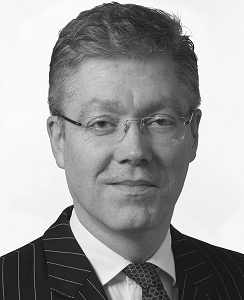Thales and Kigen case settles, but paves way for FRAND-first
A pending FRAND battle between Thales and Kigen settled in April, one week before it was due to go to trial. While the two companies will no longer face each other in court, the proceedings may have kickstarted a trend for implementers wishing to file FRAND cases against patent holders in the UK.
17 April 2024 by Amy Sandys
French electronics giant subsidiary Thales and UK firm Kigen have settled their dispute in the UK, just one week before their scheduled FRAND trial on 12 April 2024 went ahead (HP-2022-000011). The terms of the settlement are confidential. Although the parties will not be facing each other over the issue of licence rates in court, the case has nonetheless set the agenda for how other parties may approach FRAND trials in the UK in the future.
eSims for IoT
UK tech company Kigen produces eSim and iSIM technology for use in remote IoT devices. The company had sought revocation of two standard essential Thales patents covering technology, which customers use to remotely activate eSims. In an unusual move, in this case Kigen as the implementer also sought a global FRAND determination from the High Court in London against the SEP holder.
Thales’ patents EP 2 649 829 and EP 2 764 461 cover a ‘Method for downloading a subscription in an UICC embedded in a terminal’ and a ‘Secure element comprising separated containers and corresponding method’, respectively. Thales’ patent portfolio, which includes EP 829 and EP 461, is considered essential under the GSM Association guidelines, rather than the more common ETSI standard.
The former is a global standard setting organisation with offices in London, the US and China. While it has a wider global presence, it is governed by English contractual law.
FRAND-first a first
After Kigen filed two accusations of infringement, under GSM regulations Thales undertook to grant its patents on FRAND terms. However, since the parties did not reach an agreement, Kigen later sued Thales for patent invalidity largely on the basis of lack of inventive step. The company sought a declaration that it was entitled to licences to Thales’ portfolio on FRAND terms and sought the court to establish the terms of these licences.

Peter Pereira
In November 2022, the court granted a stay of the FRAND action until Kigen gave an undertaking to accept the resultant global FRAND determination. Then, in February 2023, the high court also determined that it would conduct the FRAND proceedings prior to the technical trial, staying the latter.
Green light for FRAND
Usually, the court requires the SEP holder to establish that its patents are valid and essential to the standard. In this case, however, the parties determined that commercial interests outweighed the technical aspects of the patent trial.
The judges had also permitted Kigen to showcase technical evidence during the FRAND trial, in order to accurately assess the party’s essentiality invalidity arguments. Then, although the court had earmarked the case to commence last week, the parties settled one week prior.
However, some observers believe the developments have heralded a sea-change in how parties will use UK courts to determine global FRAND rates, with implementers now given the green light to launch FRAND determinations in the UK on the basis that they will give an undertaking.

Jonathan Radcliffe
International firms in the UK
Thales had instructed a team from the London office of Kirkland & Ellis, led by partners Peter Pereira and Nicola Dagg, alongside associates Rose Jenkins, Alex Magnusdottier and Joseph Donkin. The parties had lined up 8 New Square barristers Mark Chacksfield and Tom Jones as advocates for the trials.
For Kigen, a team from Reed Smith was front and centre, led by partner Jonathan Radcliffe. Associate Joshua Schuermann provided support, while the London team also worked alongside Houston colleague Peter Chassman. The parties instructed 11 South Square barristers Iain Purvis, Kathryn Pickard, David Ivison, as well as junior tenant Miruna Bercariu.
Thomas Leech, judge of the Chancery Division of the High Court and chairman of the Competition Appeal Tribunal, was the presiding judge of the FRAND trial.
However, the previous instances had involved judges Richard Meade and Timothy Fancourt, and deputy judge Douglas Campbell. The latter is currently a barrister at the Three New Square chambers.